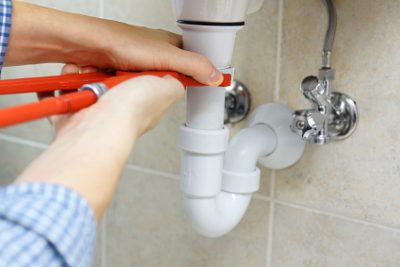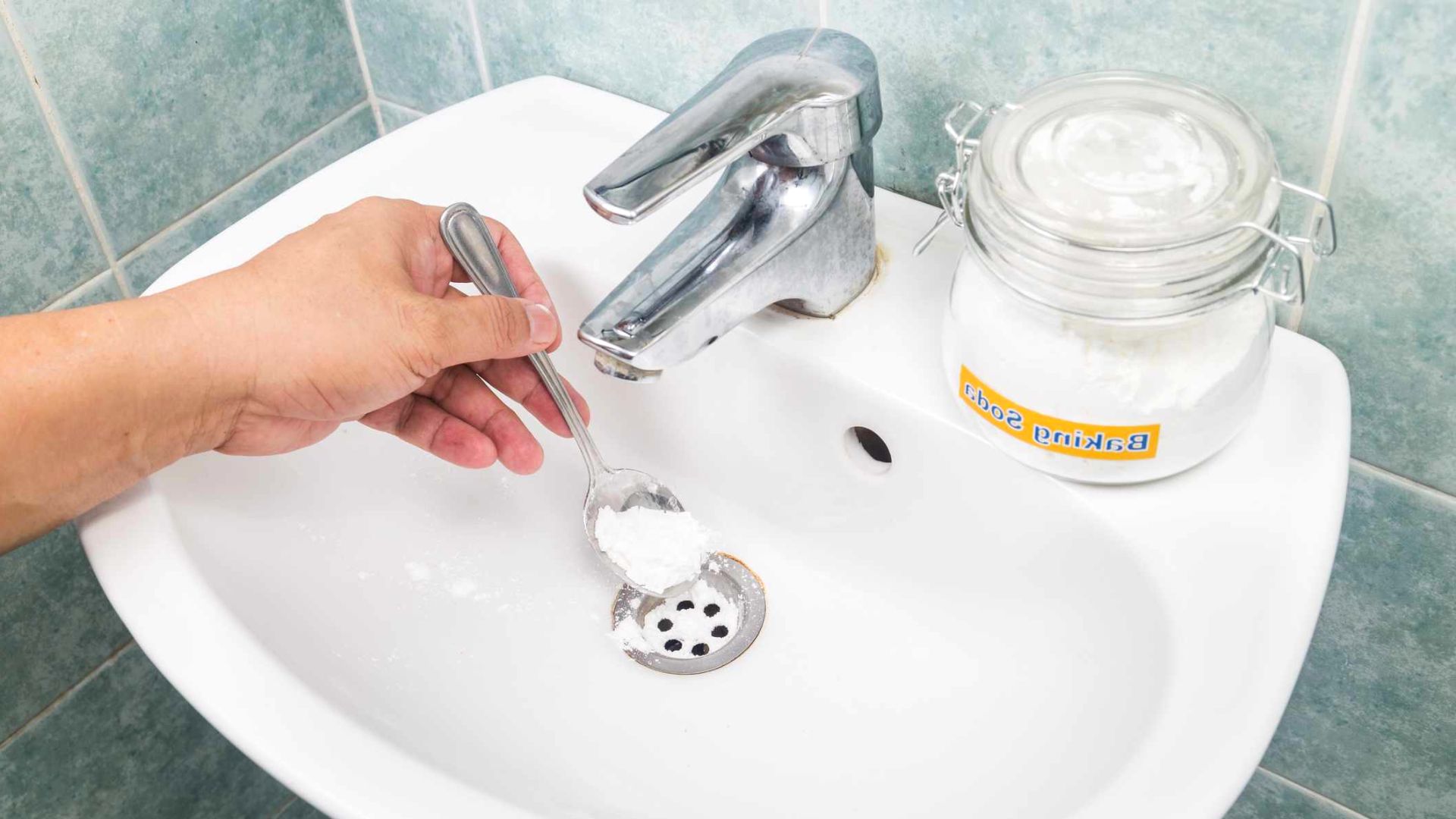Practical Tips For Resolving A Slow-Draining Sink
Practical Tips For Resolving A Slow-Draining Sink
Blog Article
Right here on the next paragraphs you can discover lots of decent advice involving How to Fix a Slow Draining Sink.

Intro
We have actually all existed: You're brushing your teeth or washing your hands, and you see the water pooling in the sink. Rather than promptly swirling away, it sticks around, transforming your once-refreshing morning routine into a small overload scene. A slow-draining sink isn't just bothersome; it's frequently an indicator of bigger pipes concerns prowling under the surface. The bright side is that many slow-draining sinks can be repaired with a little expertise, a few basic tools, and some patience. Ready to tackle this task head-on? Let's roll up our sleeves and dive right in.
Recognizing the Reasons For a Slow-Draining Sink
Prior to you start poking around in your pipelines, it helps to understand what could be causing the downturn. Understanding the origin makes it less complicated to choose the best repair.
Common Perpetrators Behind Slow Water Drainage
So, what's clogging things up? Commonly, it's a combination of day-to-day debris-- believe hair, soap scum, tooth paste deposit, and leftover food fragments. Gradually, these little bits accumulate and cling to the pipe walls, gradually tightening the passage and making it harder for water to travel through. In some cases, natural resource from tough water can additionally include in the substance, creating the ideal tornado for persistent blockages.
When is it Time to Take Action?
If you discover the water draining slower than common, it's a good idea to intervene faster instead of later on. Waiting too long might cause finish clogs, undesirable smells, or even pipe damage. If the water takes more than a couple of seconds to remove after turning off the faucet, consider it a warning and prepare to place on your do it yourself hat.
Devices and Products You'll Need
The right devices make all the difference. Thankfully, you won't need a completely stocked plumbing's van to get the job done.
Important Tools for DIY Services
A plunger is your go-to beginning factor. A tiny, sink-sized bettor produces suction that can dislodge small blockages. For more persistent clogs, a drain serpent (sometimes called a plumbing technician's auger) works wonders. A pair of handwear covers, a flashlight, and maybe a pair of safety goggles are likewise convenient.
Suggested Cleansing Solutions
Light dish soap and hot water can assist break down greasy build-up. A mix of baking soft drink and vinegar is a reliable natural remedy, and enzymatic cleaners supply a more environment-friendly approach. Maintain chemical drainpipe cleansers as a last resort, as they can be harsh on your pipelines.
Safety First: Preventative Measures and Prep work
Before you launch into unclogging mode, think of safety and security. You're managing potentially filthy water and debris, so slip on a set of gloves. If you're making use of chemical cleansers, guarantee the area is well-ventilated and adhere to the directions on the label.
Protective Gear and Office Arrangement
Lay down some old towels or dustcloths around the sink area to catch sprinkles. Eliminate any kind of things that may enter your method, like soap dispensers or tooth brush holders. Make sure you have great lights-- order a flashlight if required.
Step-by-Step Guide to Taking Care Of a Slow-Draining Sink
Now, allow's enter into the nitty-gritty. This detailed process will certainly guide you via easy strategies to restore your sink's drainage.
Action 1: Remove and Tidy the Stopper
Frequently, the stopper (that small plug you push down to obstruct water) is the very first offender. Remove it carefully and wipe any kind of hair or crud entraped around its base. Rinse it completely prior to placing it back in position.
Step 2: Utilize a Plunger to Remove Particles
Got that bettor ready? Position it over the drain and provide it a few firm pumps. The concept is to create suction that can loosen up any blockage. If you see littles debris floating up, you get on the ideal track.
Step 3: Attempt a Drainpipe Snake or Cord Hanger
If the bettor doesn't work, it's time to draw out the drainpipe snake. Delicately feed it right into the drainpipe and twist as you go. You could feel some resistance-- that's most likely the blockage. Maintain twisting and drawing until you get rid of the obstruction. If you do not have a drainpipe serpent, a straightened out wire hanger can work in a pinch.
Tip 4: Apply a DIY Drainpipe Cleanser
A natural cleaner made from cooking soft drink and vinegar can break down residual crud. Put half a mug of cooking soft drink into the drain, followed by half a cup of vinegar. Let it fizz for about 15 mins, then flush with warm water. This chain reaction frequently does wonders for small clogs.
Tip 5: Reassemble and Evaluate the Sink
Put every little thing back together and run the tap. Does the water currently swirl away at a decent speed? If yes, offer yourself a pat on the back. Otherwise, do not anguish-- there are still a couple of more dress up your sleeve.
Alternative Techniques for Stubborn Clogs
Not all obstructions are developed equivalent. If your sink still rejects to work together, consider these alternate services.
Baking Soda and Vinegar Method
We currently discussed this, however it's worth noting once again. This gentle, green technique is safer than chemical cleaners and frequently quite efficient.
Chemical Drainpipe Cleaners
Enzyme-based cleaners utilize natural microorganisms to absorb raw material. They're an excellent selection if you're wanting to avoid harsh chemicals. Just keep in mind, they may take a bit longer to function their magic.
Chemical Drain Cleansers: Advantages And Disadvantages
Chemical cleaners can blast through difficult clogs quickly, yet they're not without disadvantages. They can produce heat and fumes, damages pipes if made use of excessively, and posture environmental dangers. Utilize them moderately, and constantly adhere to the directions meticulously.
Preventive Measures to Keep Your Sink Flowing
Prevention is the very best treatment. By adopting a few easy habits, you can keep your sink from decreasing in the first place.
Regular Cleaning Practices
Clean down the sink basin and component location routinely. Eliminate hair or food bits prior to they have a possibility to wash down the drain.
Staying Clear Of Harmful Substances Down the Drain
Hesitate prior to disposing coffee grounds, oil, or fibrous vegetable scraps down the sink. These perpetrators cling to pipe walls, creating blockages gradually.
Routine Upkeep Checks
Set up a quick month-to-month evaluation. Run hot water via the sink for a few minutes, paying attention to the flow. If it seems slow-moving, act quickly before it ends up being a full-blown clog.
When to Call a Specialist Plumbing
Occasionally, despite how tough you attempt, that clog simply won't budge. That's when it's time to generate the pros.
Indications That Show an Extra Major Issue
If your sink drains slowly regardless of several attempts, or if you notice water supporting in other fixtures (like your shower or toilet), you might have a much more serious pipes concern hiding deeper in the system.
Stabilizing DIY Initiatives with Professional Help
While do it yourself can conserve you money and supply a sense of achievement, there's no shame in calling a specialist. A specialist plumber can examine your whole plumbing configuration, guaranteeing there's no underlying damage or lasting problem that might cost you more in the future.
Contrasting Prices and Long-Term Solutions
Before deciding, take into consideration the big picture. A cheap, quick fix could address the trouble briefly, yet investing in an extra irreversible remedy could conserve you money and tension over time.
Evaluating the Expenditures of DIY vs. Professional Repairs
DIY repairs frequently cost bit more than the rate of a plunger or a container of cooking soda. Professional solutions, on the other hand, included a price however might avoid repetitive concerns and expensive fixings later.
Investing in Top Quality Fixtures and Upgrades
If your sink's style contributes to regular clogs, it could be worth upgrading to higher-quality fixtures or modifying the pipes layout. Consider this an investment in your house's capability and convenience.
Conclusion
A slow-draining sink can feel like a minor inflammation, however it's often an indication that your plumbing needs a little TLC. By comprehending the source, using the right devices and techniques, and dedicating to straightforward preventive measures, you can maintain your sink streaming openly. And when all else falls short, never be reluctant to call in an expert-- your home's plumbing is worth the financial investment in treatment and upkeep.
Three Common Ways to Fix a Slow Drain
Baking Soda Method
Boil a full pot of water. Measure out cup of baking soda and pour it down the drain. Then take cup of the magical cleansing substance known as white vinegar and drop that down there too. Allow the mixture to fizz in the drain for five minutes as the vinegar and baking soda combine. Now dump in that whole pot of boiling water. This combination of cleaning substances should clear out anything that is causing your sink to drain slowly. If it doesn t...
Zip-It
If the baking soda method doesn t clear out your drain, it may be because a significant amount of hair and/or other debris has collected there and you need to remove it. Purchase a Zip-It tool at any home improvement or hardware store and insert it into your drain. It will catch any collected hair or debris that s blocking the flow of water. Pull it out. If it s got a big clump of hair, etc. on the end, you ve probably got your culprit.
Drain Cleaner
If these methods don t work, there is the standard drain cleaner that you can also buy in a hardware store or even your local grocery store. It s better if you can use a household solution, but these drain cleaners often work in a pinch. They re very simple to use. You generally just dump them in your drain and wait. If even this method is not effective, it may be time to call the plumber.
https://www.mrrooter.com/oneida/about-us/blog/2017/july/three-common-ways-to-fix-a-slow-drain/

As an avid person who reads about 4 Tips to Fix a Slow Draining Sink, I was thinking sharing that post was a good thing. Liked our piece of writing? Please share it. Help somebody else find it. Bless you for your time. Come back soon.
Source This Article Report this page